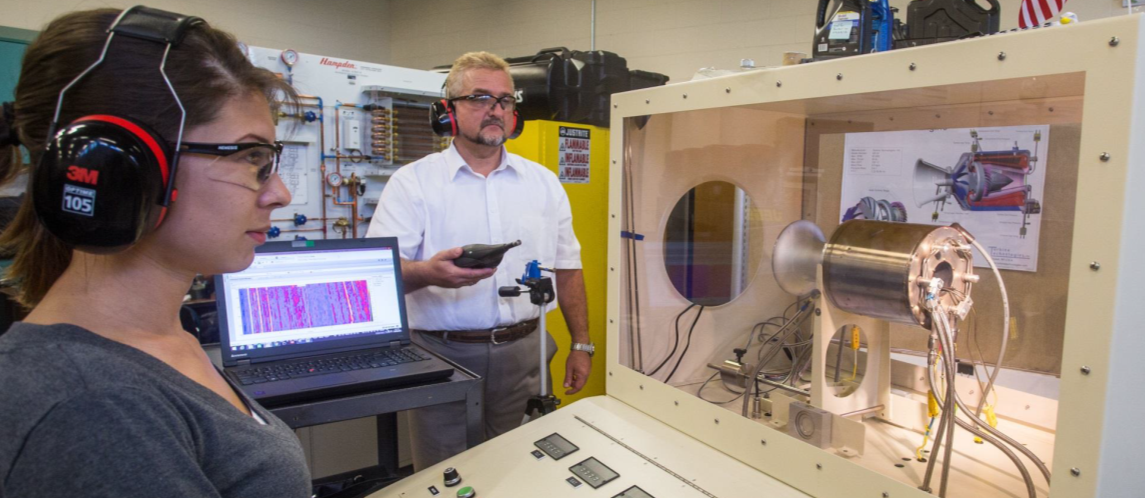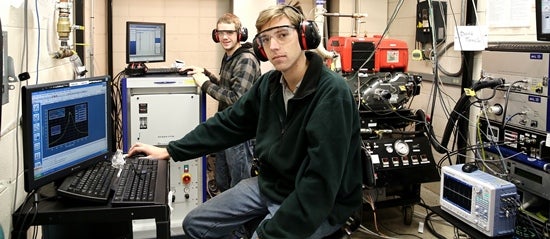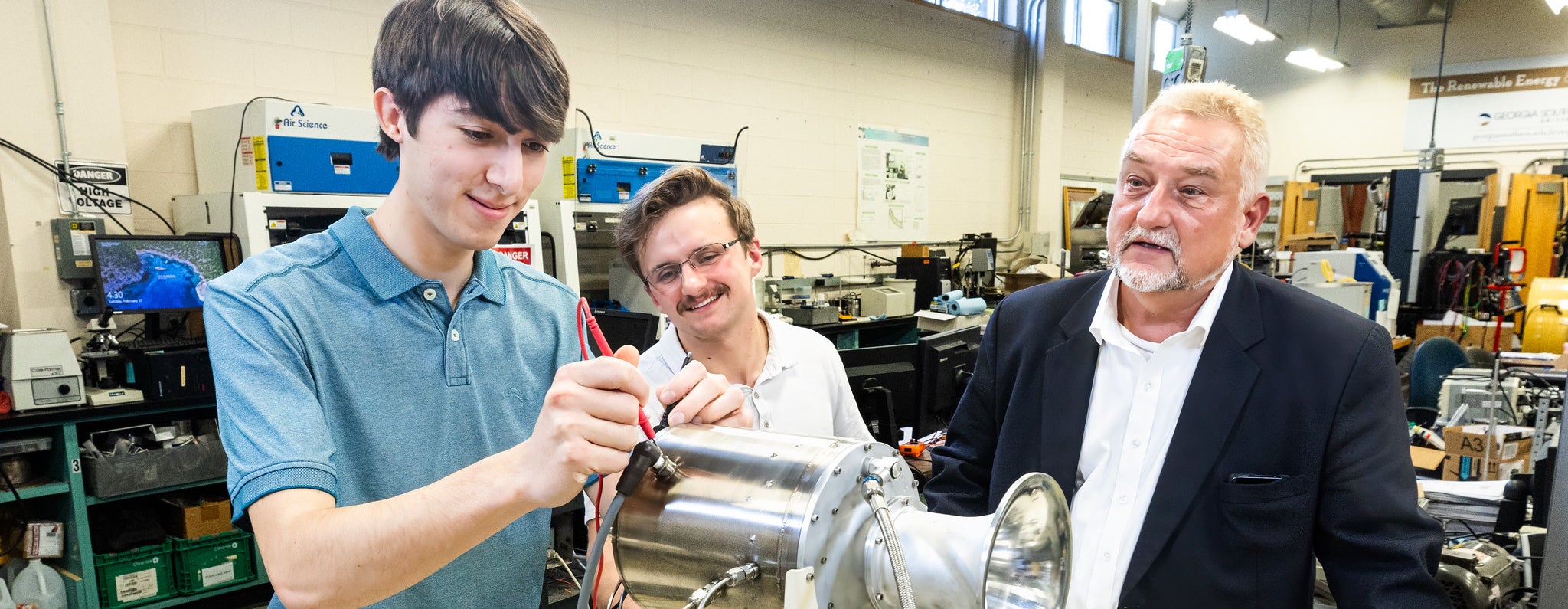Electrical, Hybrid, and Intelligent Vehicles

Welcome to the Sustainable Aviation Fuels Research Laboratory (SAFRL) at Georgia Southern! The lab’s director, Dr. Valentin Soloiu, is the Allen E. Paulson Distinguished Chair of Renewable Energy and a Professor in the Department of Mechanical Engineering.
His research laboratory explores alternative fuels’ formulation, combustion and emission characteristics (including biofuels). By focusing on sustainable fuel solutions, the lab aims to reduce aviation’s environmental impact and improve fuel efficiency for next-generation engines. Researchers collaborate with industry leaders and academic institutions to develop innovative technologies that advance the field of sustainable aviation. Current areas of research interest in the laboratory include low-temperature combustion (LTC), reactivity-controlled compression ignition (RCCI), premixed charge compression ignition (PCCI), combustion and emission characteristics of alternative fuels, biodiesel combustion and emissions, and engine tribology.
Aerospace Research
- Laser Diffraction Analysis – The Malvern Panalytical Spraytec System delivers precise, real-time spray droplet size measurements, essential for fuel atomization and aerosol research.
- Gas Turbine Testing – The MiniLab Turbojet Engine Laboratory enables real-time data collection on Brayton Cycle performance, turbine efficiency, and combustion emissions, providing critical insights into jet engine operations.
- Fuel Atomization Verification – The Fuels Atomization Lab ensures proper spray pattern testing for alternative fuels, preventing engine damage and optimizing biofuel compatibility.

Fundamental Combustion Research
- Smoke & Soot Concentration Testing – The AVL Smoke Meter uses ISO 10054-compliant filter paper methods to measure soot concentrations in mg/m³, applicable to both light-duty and large engine emissions analysis.
- Derived Cetane Number Testing – The CID 510 Cetane Ignition Delay system ensures precise fuel quality analysis, helping refineries and fuel blenders maintain consistency and compliance with industry standards such as ASTM D975 and EN 590.
- Thermal Analysis & Material Characterization – The Shimadzu DTG-60 provides high-precision thermogravimetric (TGA) and differential thermal analysis (DTA), offering insights into fuel stability, decomposition and thermal behavior.

Recognizing Excellence in Sustainable Aviation Research
The Sustainable Aviation Fuels Research Laboratory (SAFRL) at Georgia Southern University is committed to advancing renewable energy and alternative fuel technologies. Our faculty and students are at the forefront of groundbreaking research, earning prestigious awards, grants, and publications in the field of sustainable aviation.
Awards & PublicationsOur students are making an impact, securing research fellowships, industry internships, and national recognition for their contributions to aviation sustainability. Their achievements reflect the cutting-edge work and hands-on opportunities available at SAFRL.
Student Achievements
